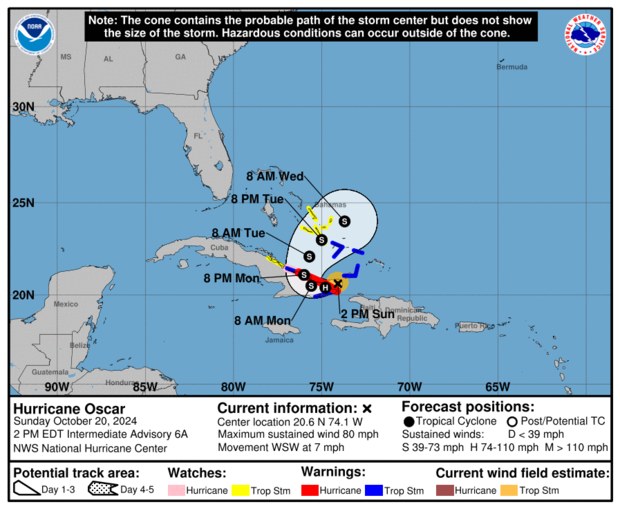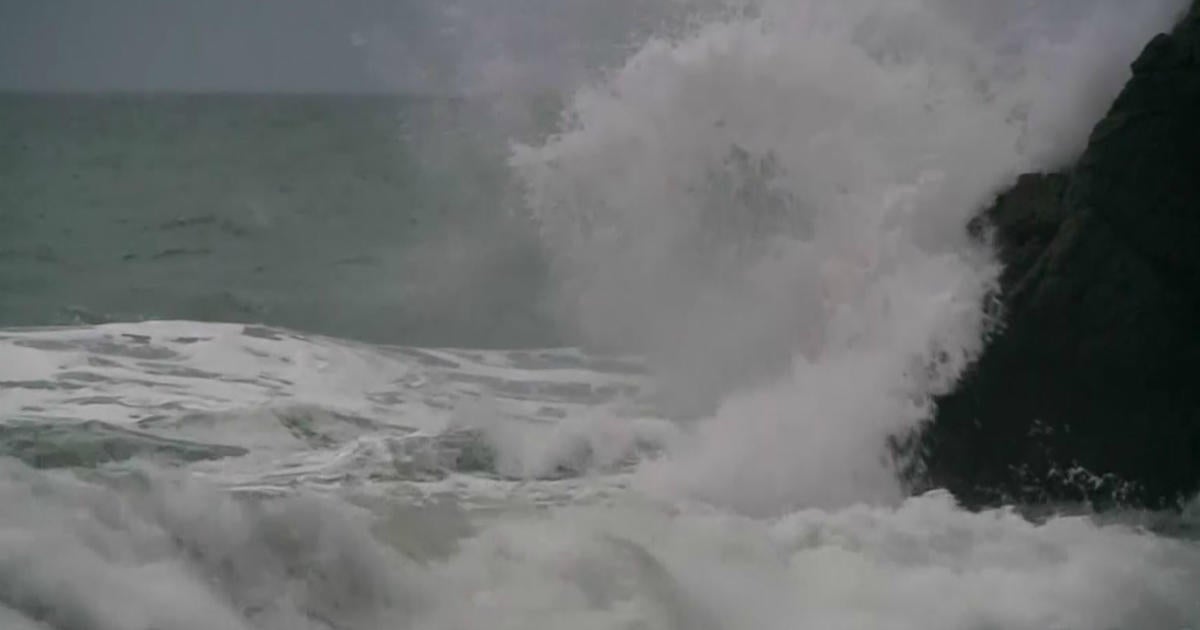Oscar weakens to tropical storm as it lashes Cuba after making landfall in the Bahamas as a hurricane
Tropical Storm Oscar made landfall as a hurricane early Sunday in the southeastern Bahamas before heading toward Cuba, bringing strong winds and heavy rain to the island, the National Hurricane Center said. The storm was impacting Cuba along the northern coast of the island's Guantanamo and Holguin provinces.
The hurricane center said Oscar was bringing "hurricane conditions, heavy rainfall, and storm surge to portions of eastern Cuba" in an advisory issued at 8 p.m. ET. The hurricane center also warned the heavy rain was "likely to cause significant flash flooding and mudslides."
The storm had traveled from the coast of Great Inagua in the Bahamas over the course of the day Sunday, maintaining a steady strength on its path toward Cuba. It was forecast to hit the Bahamas again on Tuesday but at a different point in the island chain.
Oscar, which the hurricane center characterized as "very small," is the 15th named storm of the hurricane season. It formed as a tropical storm just east of the Turks and Caicos islands on Saturday before quickly becoming a hurricane.
Rainfall amounts of 5 to 10 inches — and potentially up to 15 inches in some places — were expected in eastern Cuba through Tuesday, the hurricane center reported, with 3 to 5 inches expected in the southeastern Bahamas. Another 2 to 4 inches of rainfall was expected across the Turks and Caicos through Wednesday morning.
Tropical storm warnings were in effect for the north coast of the Cuban provinces of Las Tunas, Holguin and Guantanamo to Punta Maisi. A tropical storm warning was also in effect for the southern coast of Guantanamo province and the southeastern Bahamas.
Oscar was expected to weaken, but it could still be a tropical storm when it moves north of Cuba on Monday night on a path set to take it across the central Bahamas.
The storm's maximum sustained winds were recorded at 70 miles per hour as of 11 p.m. Sunday — making it a tropical storm. Its center was located about 25 miles west-northwest of the eastern tip of Cuba and was moving west-southwest at 6 mph. Tropical storm-force winds extended outward up to 45 miles from the storm's center.
The Atlantic hurricane season officially began on June 1 and finishes Nov. 30, with most activity occurring between mid-August and mid-October. Hurricane activity tends to peak in mid-September, according to the National Oceanic and Atmospheric Administration.
In Florida, Gulf Coast communities are struggling in the wake of back-to-back hurricanes, as Hurricane Helene rammed into the region less than two weeks before Hurricane Milton arrived.





